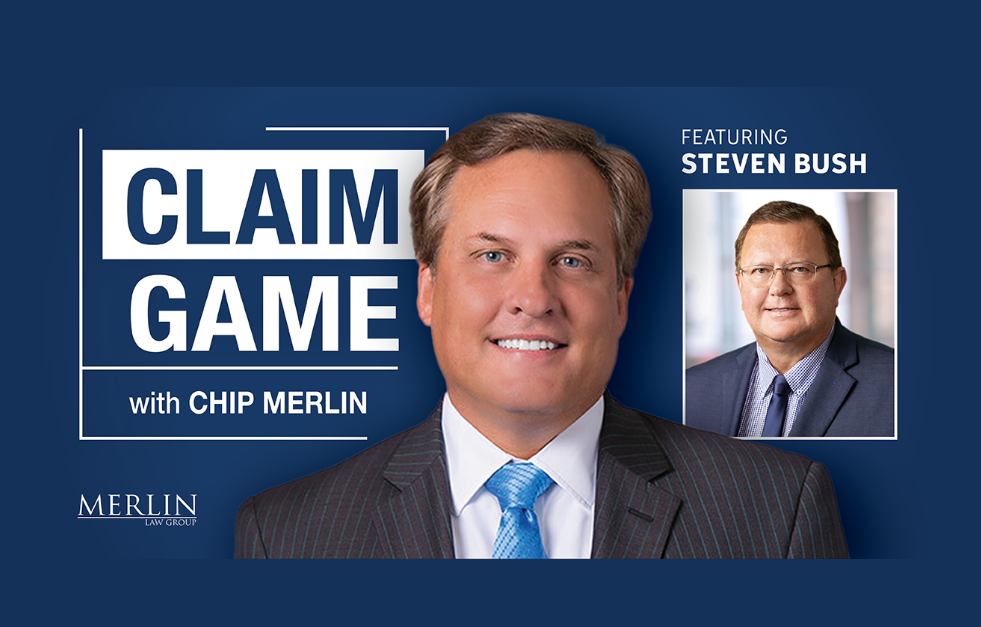Speeches are significant, especially ones where courage is important to say what is really going on in the world. On Wednesday, I will be giving a speech about Texas attorneys using runners to obtain property insurance claims to the Texas Department of Insurance in Austin, Texas. Many of the stories and examples are from Texas public adjusters who have arrangements with Texas attorneys to act as runners for them to obtain clients.
Some public adjusters have heard about me giving this speech and have questioned whether I have "switched sides." I have never switched sides and support policyholders and I am a strong proponent of the noble profession of public adjusting. I doubt that any attorney has contributed to public adjuster causes and policyholder interests over the past decade as much as I have. If others have done so, my hat is off to them. I just do not support criminal behavior and people not playing by the rules.
Public adjusters acting as cappers and runners for attorneys are breaking the law and should lose their licenses and go to jail if that is what the law calls for. Does anybody disagree?
If not, why do some of you who read this blog ask whether our firm will give $500 for residential cases or $1500 for commercial cases and try to hide this arrangement by calling it "costs, estimating costs or client administrative costs" as you tell us other attorneys do?
The Texas Bar wrote me indicating that my question of the above examples was so obvious a violation of the ethical rules they would not even write an opinion on the practice. It is obvious why the practice goes on—public adjusters can solicit and be in a position to wrongfully act as a "solicitor" directly for an attorney who cannot do so.
The practice by lawyers was obvious in Toms River, New Jersey this past spring. In open court, one policyholder told Judge Robert Fall that public adjusters had contracts signed for the Voss Law Firm from Texas. The attorney for the Voss law firm at the hearing did not deny the allegations, but profusely apologized for failing to act promptly on policyholder claims which lead to delay and dismissal of many actions.
So who is a runner? An article in the Louisiana Bar Journal1 probably explains it best:
A “runner” is a person who directly contacts an individual who may have a legal need and recommends a specific attorney to that person in exchange for remuneration from the attorney if the client ultimately hires that attorney. Think Danny DeVito in the movie version of John Grisham’s novel, The Rainmaker. Runners come in many shapes and sizes. In the past, ambulance drivers, tow truck drivers, clerks of court and law enforcement officers have been a few of the professions involved in soliciting clients on behalf of attorneys. Over the years, however, the Louisiana Legislature has passed laws making such solicitation by those professions criminal. Runner solicitation cases today do not seem to be tied to any one profession, although legal “assistants” and “investigators” seem to be the most prominent. Taxi drivers, bus drivers, carpenters and even ordained ministers have cashed in on what has become a very lucrative industry.
Public adjusters should be extraordinarily wary of colleagues acting as runners and cappers for unethical attorneys. NAPIA’s longstanding counsel, Paul Cordish, always warned that the public adjuster’s biggest career threat to losing the right to practice was the organized bar, when public adjusters practiced law for which they are not licensed to do. I would suggest that a widespread finding that some unethical attorneys are paying public adjusters to obtain cases and trying to cover up the pre-arranged financial transaction through words and clever methods may be just as big a problem and area of concern for the public adjusting profession.
If you want to learn more and be entertained while you learn, show up on Wednesday. Here is the registration link.
1 Professor Michelle LaBorde Ghetti, The Gingerbread Man’s Run is Over! Permanent Disbarment Is Penalty for Using Runners, 54 La. B.J. 80 (2006).



